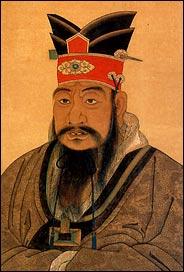
I don't really know much about Confucius; I think I only finally read The Analects (though I completely forget what that's supposed to mean) when it occurred to me I might use him in a Humanities section on The Good Society. I didn't. So I can't even claim, because I don't know the context, that he's a model for the aphoristic writer. I know Walter Benjamin remarked somewhere that the literature of the future would consist of aphorisms; I'm sure he had reasons for saying so. I'm simply reporting my taste, a personal inclination for pithy statements that open up to contemplation, that are more likely to be sublime than beautiful, that are true without pretending to proclaim a truth.
As I got older, I started to really enjoy writers I avoided when I was young; in fact, generically I still prefer fiction and plays to the pretensions of of the cntemporary market for editorials, opinions and theories. (But who doesn't like biography? It ought to count as a genre of fiction.) I like Wilde, Thoreau, Epictetus, Diogenes, Montaigne, Thomas Browne, Samuel Johnson--of course Gertrude Stein, who herself said, "Remarks are not literature," but was awfully good at producing memorable ones. I never would have thought even in grad school, when I was only starting to get over my resentment of canons enough to enjoy reading even books that seemed like monuments in "the tradition," that I would get so much pleasure out of reading Samuel Johnson (well, you have to start with Boswell's Life, because that's where most of the endearing funny remarks are).
Anyway, Confucius said several things that have remained on my list of best pithy remarks ever:
Some are the kind of axioms we put on posters to encourage the right attitude in teachers and administrators:
The gentleman helps others to realize what is good in them; he does not help them realize what is bad in them. The small man does the opposite.
If a man is correct in his own person, then there will be obedience without orders being given; but if he is not correct in his own person, there will not be obedience even though orders are given.
What the gentleman seeks, he seeks within himself; what the small man seeks, he seeks in others.
Some are just wise:
In his errors a man is true to type. Observe his errors and you will know the man.
In his dealings with the world the gentleman is not invariably for or against anything. He is on the side of what is moral.
To be fond of something is better than merely to know it, and to find joy in it is better than merely to be fond of it.
It is these things that cause me concern: failure to cultivate virtue; failure to go more deeply into what I have learned; inability, when I am told what is right, to move where it is; and inability to reform myself when I have defects.
Confucian irony is hilarious:
A man from a village in Ta Hsiang said, "Great indeed is Confucius! He has wide learning but has not made a name for himself in any field." The Master on hearing this said to his disciples, "What should I make myself proficient in? In driving? Or in archery? I think I would prefer driving."
And at least one thing he said is sort of my watchword:
The way out is through the door. Why then does no one use this way?
Confucius. He was righteous. Nice hat, by the way.




No comments:
Post a Comment